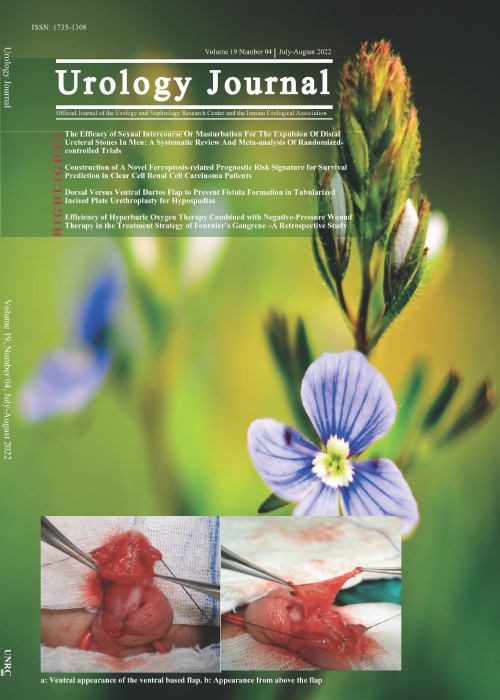Prognostic Value of Platelet Counts in Patients with Metastatic Prostate Cancer Treated with Endocrine Therapy
The endocrine therapy is effective for patients with advanced prostate cancer, but the disease eventually becomes refractory to treatment. The aim of this study was to investigate prognostic factors and to develop a risk stratification model for survival in patients with advanced prostate cancer undergoing endocrine therapy.
This study included 197 patients with stage IV prostate cancer who were treated with endocrine therapy as primary treatment at Tokyo Medical University, Tokyo, Japan, between January 1999 and November 2012. Prognostic values including baseline clinical laboratory values before endocrine therapy for stage IV prostate cancer were examined. Patients (n = 30) who were not followed or for whom data were unavailable or who were treated with radiotherapy were excluded from the study. Excluding these patients, we retrospectively analyzed 167 patients who were treated with endocrine therapy as the primary treatment. Disease-specific survival (DSS) was evaluated using the Kaplan-Meier method, and prognostic factors were identified using the Cox proportional hazard model analysis.
In univariate analyses, patients with a performance status (PS) ≥ 2, platelet count ≥ 3.0× 105 µ/L, prostate specific antigen (PSA) > 50 ng/mL, alkaline phosphatase (ALP) > 350 U/L, lactate dehydrogenase (LDH) > 240 IU/L, and Gleason score (GS) ≥ 8, hemoglobin (Hb) < 12 g/dL, extent of disease (EOD) ≥ 3 and poorly differentiated adenocarcinoma showed significantly lower DSS than their respective counterparts. Neutrophil-to-Lymphocyte ratio (NLR), platelet-to-lymphocyte ratio (PLR) and white blood cell (WBC) count were not significantly associated with DSS. In a multivariate Cox proportional hazard model, PS and platelet count were independent prognostic factors. Based on the hazard rate (HR) calculated by the following formula: HR = exp (0.82 × PS + 1.38 × platelet count) patients were stratified into 3 risk groups. The differences in DSS rates among the 3 groups were statistically significant.
These results suggest that PS and platelet count are independent prognostic factors and that a combination of these factors can be used to stratify metastatic prostate cancer patients treated with endocrine therapy according to their DSS risk.
- حق عضویت دریافتی صرف حمایت از نشریات عضو و نگهداری، تکمیل و توسعه مگیران میشود.
- پرداخت حق اشتراک و دانلود مقالات اجازه بازنشر آن در سایر رسانههای چاپی و دیجیتال را به کاربر نمیدهد.


